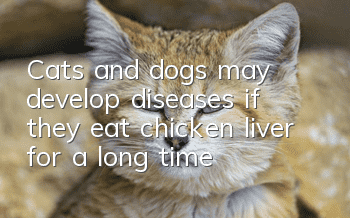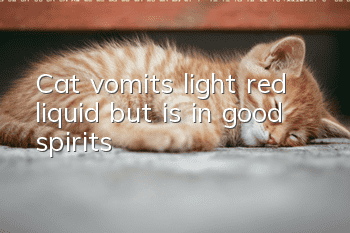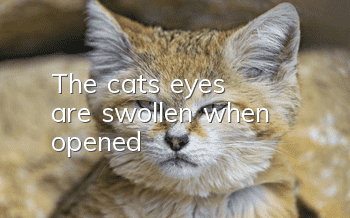Cats and dogs may develop diseases if they eat chicken liver for a long time

Nowadays, the number of pet owners is gradually increasing, and all kinds of owners are emerging in endlessly. There are those who specialize in feeding dogs meat, meals, and dog food. There are also all kinds of strange and weird foods for dogs. It is completely different. To understand what pets should eat and what they shouldn’t eat, let’s take a look at the issue of pets eating chicken livers:
Cats and dogs like the unique fishy smell of chicken liver, but if they eat it for a long time, they will develop some diseases. Obese chicken liver is rich in fat and carbohydrates. Dogs and cats that eat liver for a long time will have excess energy, which will lead to obesity and then increase the incidence of diabetes, pancreatitis, and cardiovascular disease.
Skin itching Chicken feed contains many growth-promoting agents, which are mostly metabolized by the liver. Therefore, long-term consumption of chicken livers can cause food allergies or chronic accumulation poisoning, which can easily lead to skin diseases. Vitamin A poisoning Chicken liver contains a large amount of vitamin A. If it cannot be excreted in time, it will cause accumulated vitamin A poisoning, causing pain, lameness, tooth loss and other diseases. Calcium deficiency is due to the fact that liver contains high phosphorus and low calcium content, and phosphorus also inhibits the absorption of calcium. Long-term consumption of liver will lead to a lack of calcium in the body, causing rickets in young dogs and cats or rickets in adult dogs and cats.
Bleeding. Calcium deficiency caused by eating liver for a long time will cause coagulation disorder, making chronic bleeding or acute bleeding difficult to stop. Postpartum convulsions are prone to hypocalcemia due to the massive loss of calcium caused by breastfeeding, which may lead to death if not treated in time.
- How big can a Ragdoll cat grow?
- How soon can a kitten be bathed?
- How to treat genetic diseases in cats? Treatment of genetic diseases in cats!
- What kind of cat food is better for elderly cats?
- What should I do if the cat always goes to the owner’s bed at night?
- What are the symptoms of cat fuss?
- How to take care of a pregnant cat
- Why do cats need to be fed regularly?
- How to bury a pet cat when it dies? Is there any particularity when a pet cat dies?
- Diagnosis and causes of cat obesity



